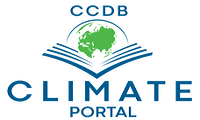Enhanced Climate Action in Response to 1.5°C of Global Warming

Scaling up NDCs by 2020 is a humanitarian, human rights, development and justice imperative in order to respond to the risks of 1.5°C of global warming, which are presented in the IPCC Special Report “Global Warming of 1.5°C” and other scientific studies. ACT Alliance, building on these scientific findings, calls on states to take fast and ambitious action now by enhancing climate targets in NDCs to maintain a realistic chance to stay at 1.5°C.
This call for action is also backed by evidence from the grassroots that climate-induced risks of poor and vulnerable people, and women, in particular, being deprived of their fundamental human rights to be free from hunger, extreme poverty and an adequate standard of living are already higher today than for others. Without effectively aligning 1.5°C-consistent national mitigation and adaptation action with SDGs and disaster risk reduction goals, sustainable development will remain an illusion, leaving behind hundreds of millions of people.
Africa and Asia are projected to experience 75 percent of the global risk exposure, with 85 to 90 percent of the exposed population, approximately half in South Asia. This puts an enormous extra burden on governments in those regions to achieve the SDGs. Providing massive international financial support to these and other climate-vulnerable developing countries is, therefore, another imperative of climate justice. It is also a clear case for the “polluter-pays principle”, given the globally unequally caused GHG emissions, with most of the disproportionally affected countries and populations being the smallest polluters.
This report echoes the main message of the IPCC Special Report that 1.5°C — not 2°C — should be considered the new limit to protect the world from dangerous climate change. High risks are already appearing at 1.5°C of global warming, such as the almost complete extinction of corals, huge marine biodiversity and fish stock loss and the hampering of food security and coastal-dependent livelihoods. On land, huge damages are predicted to happen, too, caused by drought, heat, flooding and more extreme weather events, endangering health, food and water security.
This report analyzes the cases of ten developing countries and the European Union regarding their specific risks and the level of ambition already included in their NDCs. It provides concrete policy recommendations for how each of these countries and regions could better mobilize inherent potentials to enhance their NDC to better meet the challenges of staying at 1.5°C of global warming and to reduce and manage the related risks that cannot be avoided even at 1.5°C.
The report concludes with a plan of action for all governments, including ten steps to be taken between 2018 and 2020 to respond adequately to the risks of 1.5°C of global warming:
• ensuring accountability • undertaking gap analysis • ratcheting up mitigation • fostering climate resilience • initiating co-beneficial fast-start projects • scaling up climate finance and investments • reducing climate-induced loss and damage • aligning climate and development planning • ensuring inclusive processes and institutional set-ups • deepening multilateral cooperation
- Publisher: Act Alliance Download

